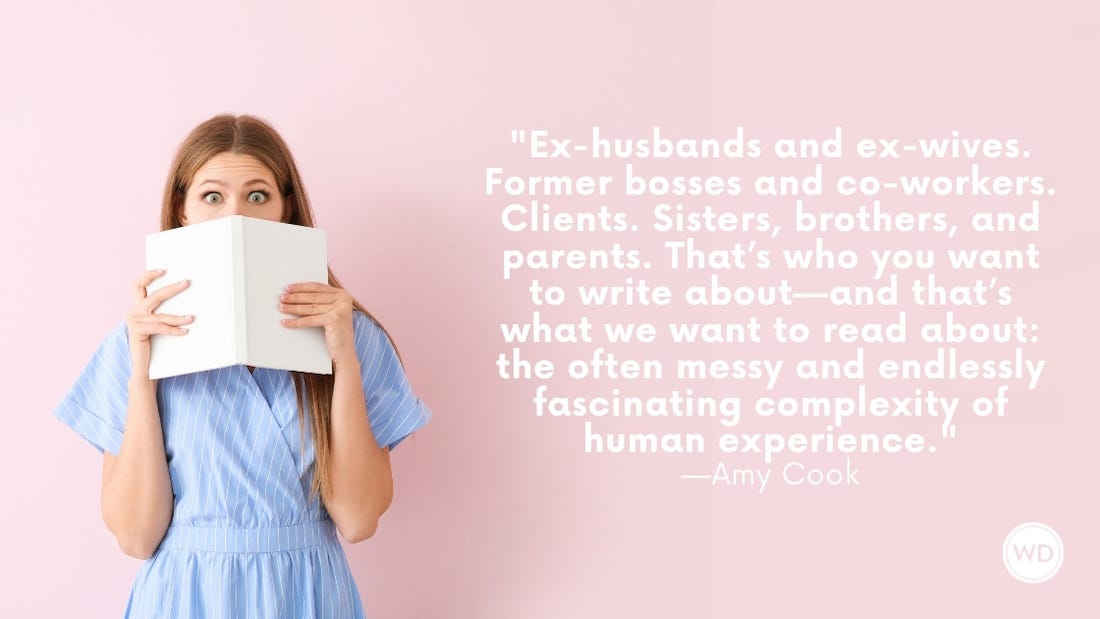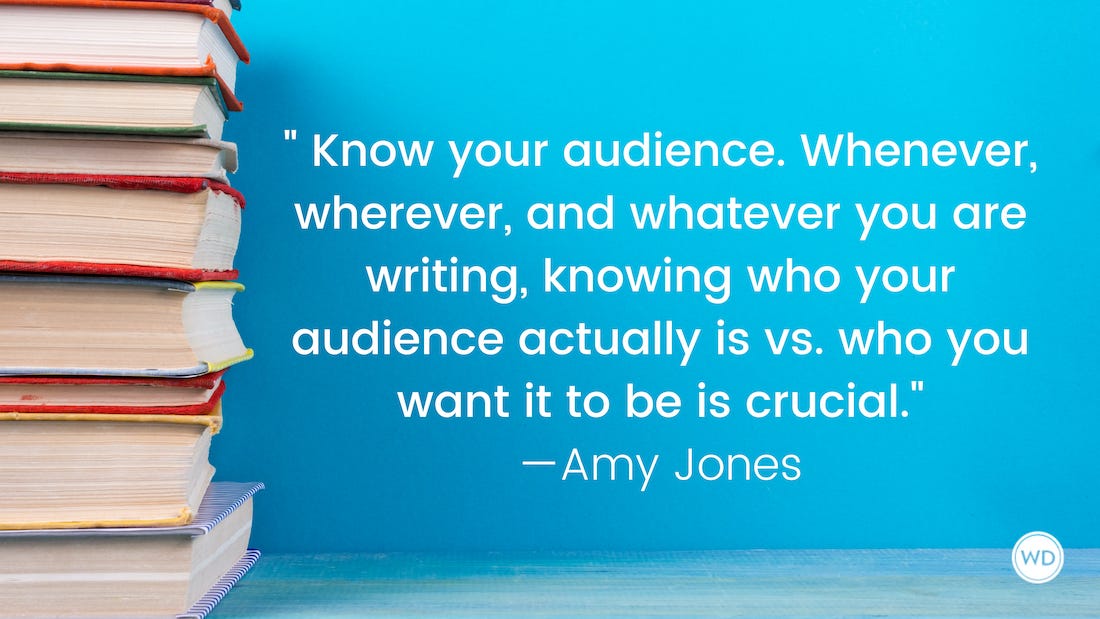Getting the Details Right in Your Writing: Myths and Facts About 3 Major Religions
Accurately portraying the complexities of different religions is no easy task. Here are a few debunked myths to keep your characters from becoming caricatures.
[The Writer’s Digest Annual Conference (August 10-12, 2018) offers everything you need to advance your writing career creatively and professionally.]
image from Getty
By Jerry Jenkins, Tyler Moss and Brenda Janowitz (respectively)
Accurately portraying the complexities of different religions is no easy task. Depictions can often fall prey to stereotype in TV and movies, and fiction is equally susceptible—especially when writers find themselves trying to represent beliefs with which they aren’t intimately familiar. Distortions of a faith can take away from the nuance of our novels, as well as stunt our collective understanding. Here are a few debunked myths to keep your characters from becoming caricatures.
MYTHS AND FACTS ABOUT CHRISTIANITY
Myth
Christians can be forgiven for anything by merely asking God.
Fact
While it’s true that the Bible says those who confess their sins will be forgiven, that teaching must be viewed in light of other scripture. Critics accuse Christians of “easy believism”—the notion that they can live however they want and commit any act they choose, knowing they’re guaranteed forgiveness. But Jesus is quoted, “Not everyone who says to Me, ‘Lord, Lord,’ shall enter the kingdom of heaven, but he who does the will of My Father in heaven.” Scripture is clear that a transformed life is evidence of salvation.
Myth
The Bible says that money is the root of all evil.
Fact
The Apostle Paul writes to his young protégé, Timothy, “… the love of money is a root of all kinds of evil …” Therefore, money itself is not the culprit, but greed is.
Myth
Christians don’t believe in science.
Fact
While many Christians might be skeptical of certain scientific theories (e.g., evolution vs. creation), portraying a Christian as one who “does not believe in science” amounts to an egregious caricature. The scientific community is replete with Christians who believe that much of science can coexist with Biblical teachings.
MYTHS AND FACTS ABOUT ISLAM
Myth
A fatwa is a death sentence issued to an individual or a specific group of individuals.
Fact
By definition, a fatwa is not nearly so pernicious. It’s a formal announcement that clarifies or resolves a matter for which the Islamic jurisprudence is not clear (e.g., when to pray on the International Space Station), and follows a complex process in which the point is thoroughly vetted by religious scholars. Misinterpretation of the term is often derived from the well-known “fatwa” issued against author Salman Rushdie by the Iranian supreme leader in 1989, calling for his assassination following the release of Rushdie’s book The Satanic Verses.
Myth
Sharia law covers a set of extreme, draconian beliefs outlined in the Quran by which all Muslims are bound to abide.
Fact
Sharia actually refers to the vast body of Islamic law, not just what’s predicated in the Quran, but also other religious texts and the pronouncements of Islamic scholars. It’s a broad code of conduct covering a range of subjects from dietary restrictions to personal finance. There are varied schools of thought regarding the interpretation of such religious statutes, and there's disagreement about how literally the edicts should be taken. Many Muslims practice some aspects of Sharia law and disregard others.
Myth
To wage jihad is to conduct a holy war against non-Muslims by way of violence in order to force them into accepting Islam.
Fact
The literal meaning of the word jihad is “struggle,” and while the term has been construed by some factions of the Islamic religion to justify violence, the original interpretation derived from the Quran pertains primarily to a spiritual struggle within the self. Jihad embodies the struggle of each individual to not be overcome by life’s material pleasures, or impulses of anger, lust, greed and the like.
MYTHS AND FACTS ABOUT JUDAISM
Myth
Jews don't eat pork.
Fact
Only Jews who observe the Jewish dietary laws, kashrut, do not eat pork. Jews who follow these rules—those who “keep kosher”—don’t eat pork or shellfish, and can't consume meat and milk at the same time. Not all Jews keep kosher, however, so such dietary restrictions depend on one’s own level of religious observation.
Myth
Jews with tattoos are forbidden from being buried in Jewish cemeteries.
Fact
It is true that the Torah forbids Jews from tattooing their bodies, but there is nothing in Jewish law that prohibits a person with tattoos from being buried in a Jewish cemetery. (Consider Holocaust survivors who have tattoos on their arms.) Every Jewish burial society does, however, have the right to enact its own criteria as to who may be buried in its plots, so some families may not allow family members who willingly tattooed themselves to be buried among their own.
Myth
Hanukkah is the Jewish equivalent of Christmas.
Fact
Hanukkah is not a biblical holiday—so you might be surprised to learn that many Jews do not consider it a major holiday at all. (Rosh Hashanah, Yom Kippur and Passover have more significance.) Hanukkah is more widely recognized by Christians merely because it is often celebrated around the same time of year as Christmas. The eight-day festival of lights celebrates the victory of a small army of Jews who fought to reclaim the Holy Temple in Jerusalem and rededicate it to the service of God.
Jerry Jenkins is a novelist (the Left Behind series) and biographer (Billy Graham, Hank Aaron, Walter Payton, Nolan Ryan) who has written 21 New York Times bestsellers and sold more than 70 million copies. He blogs at JerryJenkins.com and teaches writing at JerrysGuild.com.
Brenda Janowitz is the author of five novels, most recently The Dinner Party. Her work has appeared in The New York Times, The Washington Post and Salon, and she is a regular contributor to PopSugar.
Are you ready to push yourself beyond your comfort zone and take your writing to new heights? This novel writing workshop is designed for novelists who are looking for book editing and specific feedback on their work. When you take this online workshop, you won't have weekly reading assignments or lectures. Instead, you'll get to focus solely on completing your novel. Learn more and register.
Tyler Moss was an editor-at-large for Writer's Digest magazine.









